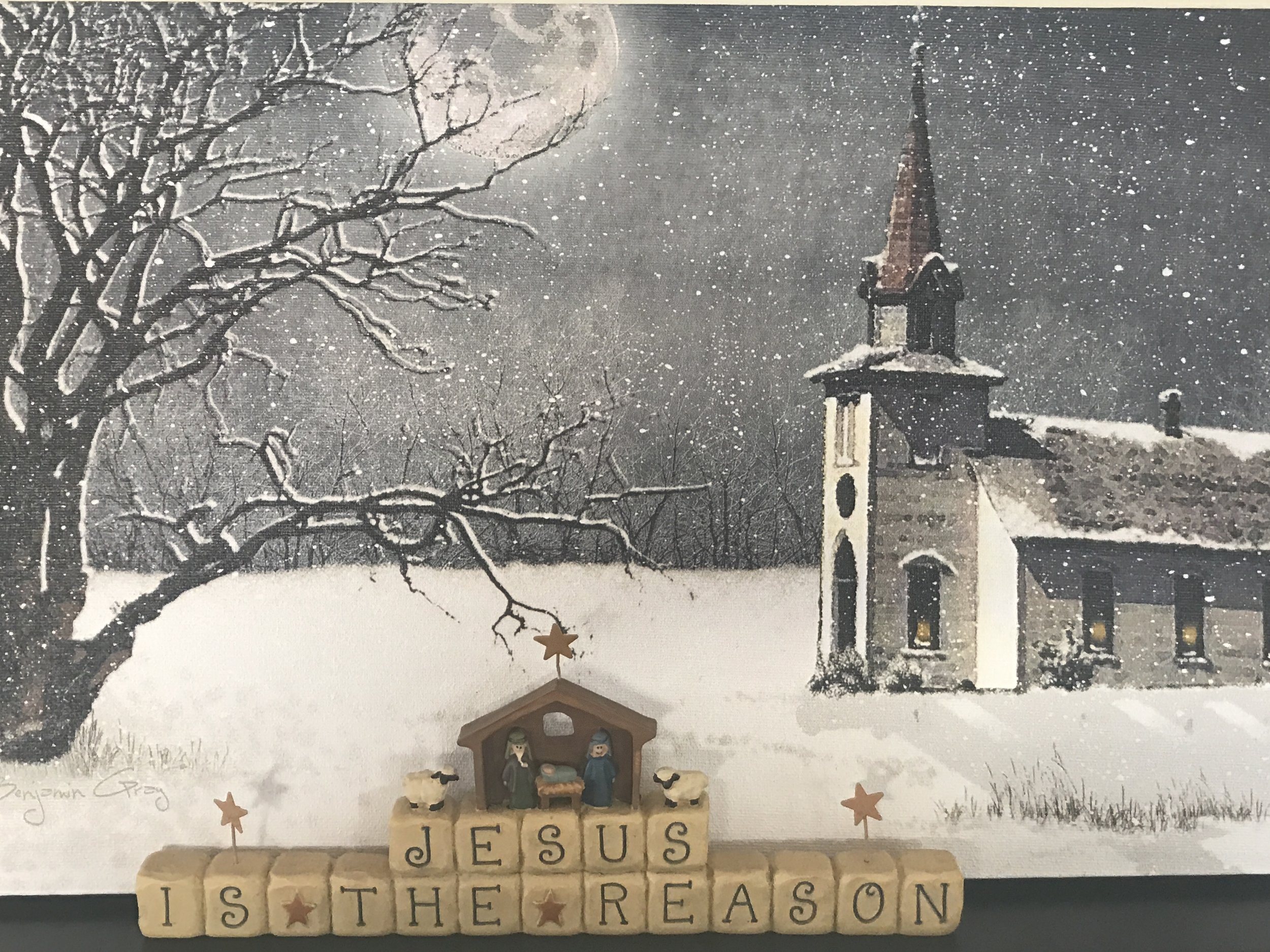 Why are our churches so silent on the matter of Jesus’ return? Jan Markell, in a recent article, noted that 90% of pastors do not preach or teach about the return of our King, the Lord Jesus.
Why are our churches so silent on the matter of Jesus’ return? Jan Markell, in a recent article, noted that 90% of pastors do not preach or teach about the return of our King, the Lord Jesus.
It was not like this during the early days of the church. The sense of imminency for Jesus’ appearing spilled over from the pages of the New Testament into the early centuries of the church.
Today, we see signs of the approaching tribulation everywhere we look. Yet, few pastors even mention the Rapture, the tribulation, Jesus’ Second Coming, or the Millennium. Why do so few truly understand the times in which we live?
Pastor Tom Hughes of The 412 Church in San Jacinto, California recently wrote an article titled, "Five Reasons Pastors Don't Teach Bible Prophecy." Briefly, his reasons are as follows:
- They don’t understand prophecy
- They fear offending members of the church
- They sense it will scare people
- They fear people will stop giving
- They fear looking like fringe groups who take things to an extreme
I agree that these things play a role in the current silence regarding prophecy. However, I believe they are symptomatic of far deeper issues impacting the church today.
False Teaching
From the very beginning, Satan opposed prophetic teaching. By the time the ink was barely dry on Paul’s first letter to the Thessalonians, false teachers delivered a message to the believers in Thessalonica contradicting what Paul wrote concerning the timing of Jesus’ return for His church.
In 1 Thessalonians 5, Paul promised the young believers in Thessalonica that Jesus would come for them before the judgments of the “Day of the Lord” (see 5:9). I believe these judgments include the entire seven year tribulation, but that is a topic for another time. Almost immediately after the church read Paul’s first letter, false teachers caused a great panic among these believers by telling them the “Day of the Lord has come” (see 2 Thess. 2:2).
It took only a matter of weeks or perhaps months for Satan to attack our hope embodied in the rapture.
In other words, either they had missed the rapture or Paul was mistaken about the Lord’s return for His church. It took only a matter of weeks or perhaps months for Satan to attack our hope embodied in the rapture.
In his second epistle, Peter warned of false teachers who would arise denying the basics of our hope for Jesus’ return. “Knowing this first of all, that scoffers will come in the last days with scoffing, following their own sinful desires. They will say, “Where is the promise of his coming? For ever since the fathers fell asleep, all things are continuing as they were from the beginning of creation” (2 Pet. 3:3-4). Are not many today echoing this same refrain? Does this not sound like the day in which we live?
The current pervasiveness of false teaching on Jesus’ Second Coming should not surprise us. The Bible clearly warned it would happen. It started during the days of the apostles and continued on from there.
In church history, the first prominent naysayer concerning the promises of Jesus’ return was a man named Origen who lived in the early fourth century AD. Influenced heavily by the pagan philosopher Plato, he taught that the promised millennium would be a spiritual kingdom, not something tangible and visible. The Council of Nicea in AD 325 condemned his many wayward beliefs, which included reincarnation as well as the belief that everyone, without exception, would someday be saved.
Many false teachings regarding prophecy persist today and I believe this makes many pastors hesitant to talk about the times in which we live. Rather than become embroiled in controversy or appear extreme, they remain silent. Rather than offend people, they avoid the subject altogether.
As a result, many false ideas regarding Jesus’ return continue unchecked by sound scriptural teaching. The lack of sound teaching about prophecy only serves to further the spread of false teaching.
A Failure to Recognize That We Are at War
The avoidance of teaching about the Lord’s return blinds many to another reality.
Many preachers correctly apply the message of our spiritual warfare to the battles of our everyday life and Satan’s attempts to derail our walk with Jesus. Yet few go beyond this struggle to talk about the prophetic implications of the devil’s geopolitical war against the Lord, Israel, followers of Christ, and God’s Word.
The battle is not between good and bad people, between political parties, or even between politicians we admire and those we do not. As Ephesians 6:12 makes clear, our battle is against demonic forces of varying powers, not flesh and blood. We have a target on our backs, an enemy raging about as a roaring lion seeking to stop Jesus’ soon arrival on earth and destroy us in the process.
Only a worldview through the lens of biblical prophecy offers any sense to the war that daily rages throughout the world.
Satan sees the signs of Jesus’ soon return and it should not surprise us that he is doing everything he can to prevent it. He tried to eliminate the Israelites before Jesus’ first coming; it makes perfect sense he would repeat his strategy with the Second Coming.
Satan knows Jesus will someday return to a restored Israel and his only chance at preventing this is to utterly destroy Israel. We see this in the current massive buildup of weapons aimed at Israel. Scripture describes a great battle in Ezekiel 38-39 where many nations come against Israel. However, God will intervene and rescue His people.
When Satan’s initial attempts to destroy Israel eventually fail, he will use his man, the antichrist, to attempt to stop Jesus’ return to earth. The coming world order will be the mechanism for this coming evil leader to attempt to kill all Jews along with all followers of Christ. We see his plans for this new world order everywhere we look.
We see it in the dramatic growth of the occult and open worship of Satan. We see it in the pictures of small children in agony after another attack of chemical weapons in Syria. We see it in scenes of Christians lined up to be executed. Alas, we also see it in refusal of many politicians from both parties to take a firm stand against the ghastly murder of the unborn and sale of their body parts.
We see it in the hatred toward both Jews and Christians sweeping through the world. This is all setting the stage for the arrival of the antichrist (1 John 2:18). A world aligned with God would never accept the evil designs of the coming world order. The devil must destroy biblical faith and the Judeo-Christian foundations of right and wrong if he is to accomplish his purposes through the antichrist.
As followers of Christ, we are caught up in a war we cannot ignore. An understanding of the times in which we live not only gives us insight into the war around us, but also gives us the courage to push back against the enemy.
A Failure to Recognize Our Place in God’s Redemptive Story
I believe the silence in our pulpits regarding prophecy results not so much from a lack of understanding of prophecy as it does from a failure to grasp the full extent of the glorious message of the Gospel. There is a future tense to the Gospel; one in which Jesus’ returns to earth, binds Satan, and sets up His righteous kingdom over all the earth.
As believers, we are born into God's redemptive story. Of course there is an enemy. Have you ever read a great story where there was not an adversary, someone opposing the hero of the story? So often we enjoy great dramas not realizing they also speak to our struggles and ultimate victory over our greatest foe.
Of course there is an enemy. Have you ever read a great story where there was not an adversary, someone opposing the hero of the story?
So yes, we are at war and that is where the good news begins. John Eldredge compares our adventure to Frodo in The Lord of the Rings. Frodo played a vital role in saving the world of his day from the evil Saran. Eldredge calls it living mythically; grasping the reality of the great adventure of redemption of which we are all a part.
The magnificent story of our redemption includes Jesus’ saving work on our behalf in the past as well as His current work inside us through the Holy Spirit. However, we are also saved in hope of a glorious future, in hope of the completion of our adoption into God’s family and the redemption of our bodies (see Rom. 8:24).
Our salvation points to the future. Is this not why New Testament believers lived in constant expectation of Jesus’ appearing? The Rapture represents the completion of Jesus’ saving work on our behalf when we receive our immortal bodies and are caught up to forever be with our Savior.
We are not simply spectators in God’s glorious redemptive program; we are active participants. The spiritual kingdom, on whose behalf we now engage as warriors, will someday become a glorious physical kingdom in which we will reign alongside Jesus.
We all play a role in this great undertaking. Our mere presence on earth restrains Satan’s plans for world dominance; or more precisely, it’s the Holy Spirit inside each one of us that now restrains the work of the coming antichrist. Our prayers . . . our prayers make a great difference in the battle into which we were born the moment we trusted Christ as our Savior.
Do you understand why Satan works so hard to keep believers from understanding the true nature of the battle and their amazing role in God’s glorious plan of redemption? Believers with eyes focused on earth-bound hopes are much less of a threat to his ultimate plans.
Things are not as they seem; there is a much greater reality than what we see with our eyes.
Just like the ending to Beauty and the Beast, the Lord will someday gloriously transform everything we see; He will make all things new. The coming transformation of God’s people and His creation will make the ending to Beauty and Beast seem rather dull by comparison.
A proper perspective of our place in the Lord’s redemptive story negates all the factors that keep many pastors from talking about prophecy. The subject may very well scare us at times; our role requires courage, faith, and a heart devoted to bringing God the glory due His name.
The call of Jesus, repeatedly echoed by His apostles, is to watch and be ready for His return (read Matt. 24:42-51). His last spoken words to the church in Revelation 22 also echo this same plea for readiness.
This perspective energizes our faith and determination to serve the Lord in making disciples of all nations.
Why did Jesus encourage both fervent watchfulness and a passion for reaching the lost? Why is it so critical that we hear both messages from our pastors and teachers?
Stay tuned . . . .



 In 1 Corinthians 10:6, Paul says that the sins of the Israelites in the wilderness happened as an “example” that we might not follow in their footsteps. On the other hand, we find many positive models of faith in the Old Testament we can follow such as some men from the tribe of Issachar.
In 1 Corinthians 10:6, Paul says that the sins of the Israelites in the wilderness happened as an “example” that we might not follow in their footsteps. On the other hand, we find many positive models of faith in the Old Testament we can follow such as some men from the tribe of Issachar. Life in this world so easily takes our eyes off the prize that awaits us in eternity. It’s so easy to become focused on our daily routines and our attempts to get ahead in this world, that we forget about our true and enduring hope.
Life in this world so easily takes our eyes off the prize that awaits us in eternity. It’s so easy to become focused on our daily routines and our attempts to get ahead in this world, that we forget about our true and enduring hope. The anti-Trump sentiment has hit a fever pitch in recent weeks over his immigration policies. Even though President Trump’s initiatives differ little from the policies of other recent presidents, this has not stopped the fierce condemnation of his executive orders. Many forget that President Obama stopped all immigration from Iraq for six months in 2011 citing similar reasons for his travel ban that President Trump is giving for his actions.
The anti-Trump sentiment has hit a fever pitch in recent weeks over his immigration policies. Even though President Trump’s initiatives differ little from the policies of other recent presidents, this has not stopped the fierce condemnation of his executive orders. Many forget that President Obama stopped all immigration from Iraq for six months in 2011 citing similar reasons for his travel ban that President Trump is giving for his actions. Fake news: it’s a term we hear every day and probably use ourselves. Whether you come from a liberal or conservative perspective, you likely accuse the other side of taking its cues from fake news.
Fake news: it’s a term we hear every day and probably use ourselves. Whether you come from a liberal or conservative perspective, you likely accuse the other side of taking its cues from fake news. A couple weeks back, I wrote about the fulfillment of prophecy before our eyes as it related to UN resolution 2334 and the expected January 15, 2017 peace conference in Paris. The world seemed intent on finally establishing a Palestinian state at the expense of Israel’s security.
A couple weeks back, I wrote about the fulfillment of prophecy before our eyes as it related to UN resolution 2334 and the expected January 15, 2017 peace conference in Paris. The world seemed intent on finally establishing a Palestinian state at the expense of Israel’s security. Despite being bound to a wheelchair as the result of a traffic accident, he was the most joyous, Spirit-filled believer I had seen up to that point in my life. I remember Paul Lundgren’s
Despite being bound to a wheelchair as the result of a traffic accident, he was the most joyous, Spirit-filled believer I had seen up to that point in my life. I remember Paul Lundgren’s
 Merry Christmas to all the followers of my blog and Facebook page!
Merry Christmas to all the followers of my blog and Facebook page! Imagine the entire state of Texas covered two feet deep with silver dollars. If you have ever spent any time driving in Texas, you realize this is a huge number of coins. In addition, let’s say one of the coins is painted red.
Imagine the entire state of Texas covered two feet deep with silver dollars. If you have ever spent any time driving in Texas, you realize this is a huge number of coins. In addition, let’s say one of the coins is painted red. I must confess that I have enjoyed several of the Christmas movies on the Hallmark channel during the past few weeks. My wife and I watched them together; I think we are just romantics at heart.
I must confess that I have enjoyed several of the Christmas movies on the Hallmark channel during the past few weeks. My wife and I watched them together; I think we are just romantics at heart. A common objection to the pretribulation rapture states that this position must be wrong because it provides a way for believers in the United States to escape persecution. If Jesus returns before the rapture, then Christians in America will be the “lucky few” in church history to escape violent opposition because of their faith.
A common objection to the pretribulation rapture states that this position must be wrong because it provides a way for believers in the United States to escape persecution. If Jesus returns before the rapture, then Christians in America will be the “lucky few” in church history to escape violent opposition because of their faith. During the past year, the Lord called me away from my career as a financial analyst to pursue writing on a fulltime basis. His call began with a stirring of my heart as I saw the ridicule of the pretribulation rapture on Facebook and I felt a strong desire to defend my beliefs.
During the past year, the Lord called me away from my career as a financial analyst to pursue writing on a fulltime basis. His call began with a stirring of my heart as I saw the ridicule of the pretribulation rapture on Facebook and I felt a strong desire to defend my beliefs.
 I was startled by what I saw on my computer screen. It showed 47,444,396 views for the song I was listening to on YouTube. I had never seen such a high number, although other songs may very well have such a number or even exceed that total.
I was startled by what I saw on my computer screen. It showed 47,444,396 views for the song I was listening to on YouTube. I had never seen such a high number, although other songs may very well have such a number or even exceed that total. For anyone who is interested, I have placed the introduction and first two chapters of my book (very much still in progress) on the "The Thrill of Hope" page, which can be accessed by the link on the top of this web site or on the side margin.
For anyone who is interested, I have placed the introduction and first two chapters of my book (very much still in progress) on the "The Thrill of Hope" page, which can be accessed by the link on the top of this web site or on the side margin. “Enter his gates with thanksgiving, and his courts with praise! Give thanks to him; bless his name.”
“Enter his gates with thanksgiving, and his courts with praise! Give thanks to him; bless his name.”
 In the aftermath of the 2016 election, we continue to see rioting and violence spread across America. Chants of “not my president” and “not my country” are common. Some of the demonstrations have turned anti-American with the burning of American flags and even deadly as a protest blocking traffic kept an ambulance from getting to a hospital in time to save a man’s life. Regrettably, attacks persist on both sides.
In the aftermath of the 2016 election, we continue to see rioting and violence spread across America. Chants of “not my president” and “not my country” are common. Some of the demonstrations have turned anti-American with the burning of American flags and even deadly as a protest blocking traffic kept an ambulance from getting to a hospital in time to save a man’s life. Regrettably, attacks persist on both sides. In the aftermath of the election, I believe the biggest mistake we can make as followers of Christ is to put our hope in President-elect Donald Trump or think the rapture is not close because of his election. I am glad he won, but we dare not put our trust in him.
In the aftermath of the election, I believe the biggest mistake we can make as followers of Christ is to put our hope in President-elect Donald Trump or think the rapture is not close because of his election. I am glad he won, but we dare not put our trust in him.